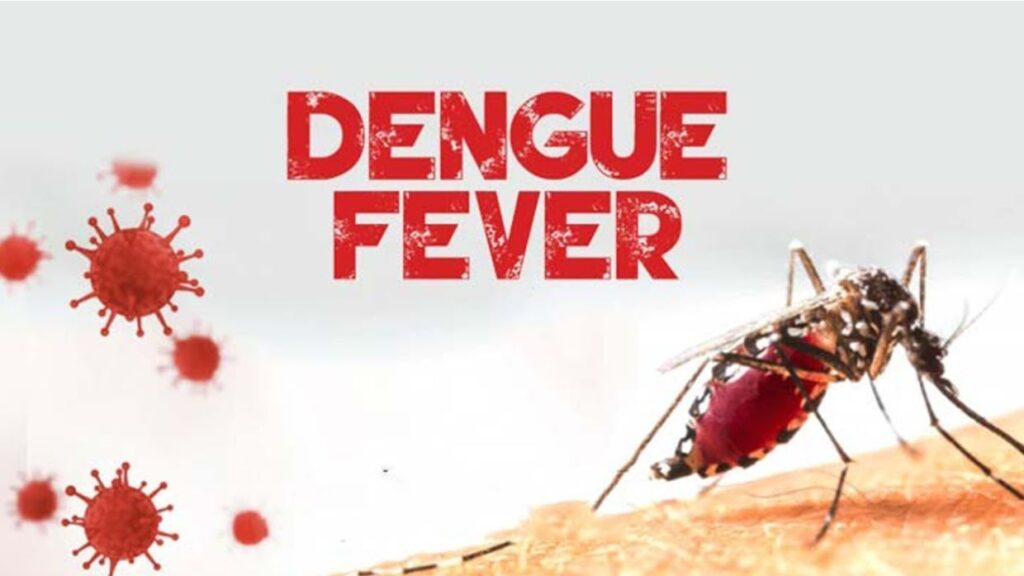Introduction
Dengue Fever, often referred to as “breakbone fever” due to the severe joint and muscle pain it causes, is a mosquito-borne viral infection that poses a significant health threat in many parts of the world. In this article, we will delve into the various aspects of it, including its causes, symptoms, prevention, and treatment options. By the end, you will have a thorough understanding of this disease and how to protect yourself and your loved ones.
1. Understanding Dengue Fever
Dengue Fever is caused by the Dengue virus, which is transmitted to humans through the bite of infected female Aedes mosquitoes. Let’s explore the key factors contributing to the spread of Dengue Fever:
1.1 Mosquito Vectors
Aedes aegypti and Aedes albopictus mosquitoes are the primary carriers of the Dengue virus. These mosquitoes thrive in tropical and subtropical regions, making those areas particularly susceptible to Dengue outbreaks.

1.2 Virus Strains
There are four different serotypes of the Dengue virus (DEN-1, DEN-2, DEN-3, and DEN-4). Infection with one serotype provides lifelong immunity against that specific serotype but doesn’t protect against the others. Subsequent infections with different serotypes can lead to more severe Dengue symptoms, known as Dengue Hemorrhagic Fever (DHF).
2. Dengue Fever Symptoms
Recognizing the symptoms of it is crucial for early diagnosis and treatment. Common symptoms include:
- High fever
- Severe headache
- Pain behind the eyes
- Joint and muscle pain
- Rash
- Mild bleeding (e.g., nosebleeds or gum bleeding)
- Fatigue
3. Causes of Dengue Fever
3.1 Mosquito Bites
The primary cause of it is the bite of an infected Aedes mosquito. When a mosquito bites a person infected with the Dengue virus, it becomes a carrier and can transmit the virus to other individuals through subsequent bites.
3.2 Travel to Endemic Areas
Traveling to regions with high mosquito activity and inadequate sanitation increases the risk of contracting it. Tourists and travelers should take preventive measures to avoid mosquito bites.
3.3 Lack of Effective Mosquito Control
Inadequate mosquito control measures, such as stagnant water collection, contribute to the breeding and proliferation of Aedes mosquitoes, enhancing the risk of Dengue transmission.
4. Prevention Strategies
Preventing it primarily involves reducing exposure to mosquito bites. Here are some effective prevention strategies:
4.1 Use of Mosquito Repellent
Apply mosquito repellent on exposed skin and clothing, especially during peak mosquito activity times, which are early morning and late afternoon.
4.2 Protective Clothing
Wear long-sleeved shirts, long pants, socks, and shoes to minimize exposed skin and reduce the risk of mosquito bites.
4.3 Eliminate Breeding Sites
Regularly inspect your surroundings for stagnant water sources, such as containers, flower pots, and gutters. Empty or cover them to prevent mosquito breeding.
5. Treatment
Currently, there is no specific antiviral treatment for it. Treatment focuses on relieving symptoms and providing supportive care. Here are some essential points to consider:
- Stay hydrated by drinking plenty of fluids.
- Get plenty of rest to help your body recover.
- Over-the-counter pain relievers can help reduce fever and pain.
- Seek medical attention if symptoms worsen or you develop warning signs of severe Dengue, such as severe abdominal pain, persistent vomiting, and bleeding.
FAQs (Frequently Asked Questions)
What is Dengue Fever?
It is a viral illness transmitted by Aedes mosquitoes. It causes symptoms like high fever, severe headache, and joint pain.
Can Dengue Fever be fatal?
In severe cases, it can lead to Dengue Hemorrhagic Fever, which can be fatal. Early diagnosis and treatment are crucial for recovery.
How can I prevent Dengue Fever?
Prevent it by using mosquito repellent, wearing protective clothing, and eliminating mosquito breeding sites around your home.
Is there a vaccine for Dengue Fever?
Yes, some countries have approved Dengue vaccines, but they are not universally available. Consult your healthcare provider for vaccination recommendations.
What is the difference between Dengue Fever and Malaria?
Dengue Fever is caused by a virus and transmitted by mosquitoes, while Malaria is caused by a parasite and transmitted by Anopheles mosquitoes. Both can cause similar symptoms, so proper diagnosis is essential.
Are there any natural remedies for Dengue Fever?
While there is no specific natural cure for Fever, staying hydrated and getting enough rest can help alleviate symptoms.
Conclusion
In conclusion, Dengue Fever is a serious health concern in many parts of the world, but understanding its causes, symptoms, and prevention methods can greatly reduce the risk of infection. Remember to take precautions when traveling to endemic areas and promptly seek medical attention if you suspect you have Fever. By staying informed and vigilant, we can combat this mosquito-borne illness effectively.

